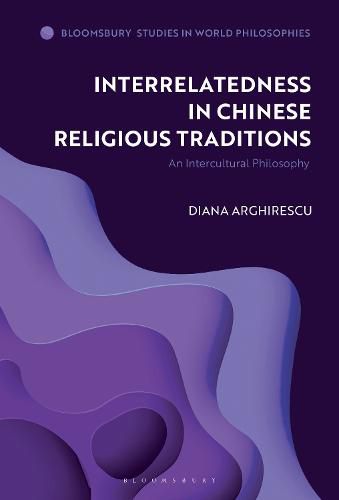Readings Newsletter
Become a Readings Member to make your shopping experience even easier.
Sign in or sign up for free!
You’re not far away from qualifying for FREE standard shipping within Australia
You’ve qualified for FREE standard shipping within Australia
The cart is loading…






The study of religions is essential for understanding other cultures, building a sense of belonging in a multicultural world and fostering a global intercultural dialogue. Exploring Chinese religions as one interlocutor in this dialogue, Diana Arghirescu engages with Song-dynasty Confucian and Buddhist theoretical developments through a detailed study of the original texts of the Chan scholar-monk Qisong (1007-1072) and the Neo-Confucian master Zhu Xi (1130-1200). Starting with these figures, she builds an interpretive theory focusing on ethical interrelatedness and proposes it as a theoretical tool for the study of the Chinese religious traditions.
By actively engaging with other contemporary theories of religion and refusing to approach Chinese religions with Western frameworks, Arghirescu’s comparative perspective makes it possible to uncover differences between the various Western and Chinese cultural presuppositions upon which these theories are built. As such, this book breaks new ground in the methodology of religious studies, comparative philosophy and furthers our understanding of the Confucian-Buddhist interaction.
$9.00 standard shipping within Australia
FREE standard shipping within Australia for orders over $100.00
Express & International shipping calculated at checkout
The study of religions is essential for understanding other cultures, building a sense of belonging in a multicultural world and fostering a global intercultural dialogue. Exploring Chinese religions as one interlocutor in this dialogue, Diana Arghirescu engages with Song-dynasty Confucian and Buddhist theoretical developments through a detailed study of the original texts of the Chan scholar-monk Qisong (1007-1072) and the Neo-Confucian master Zhu Xi (1130-1200). Starting with these figures, she builds an interpretive theory focusing on ethical interrelatedness and proposes it as a theoretical tool for the study of the Chinese religious traditions.
By actively engaging with other contemporary theories of religion and refusing to approach Chinese religions with Western frameworks, Arghirescu’s comparative perspective makes it possible to uncover differences between the various Western and Chinese cultural presuppositions upon which these theories are built. As such, this book breaks new ground in the methodology of religious studies, comparative philosophy and furthers our understanding of the Confucian-Buddhist interaction.